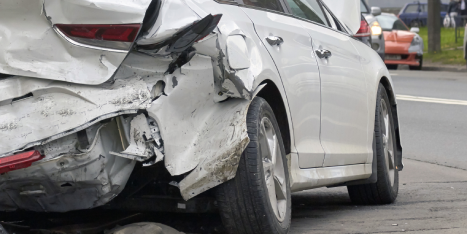 If you’ve been involved in a traffic accident in Florida, you may be surprised to learn that the statements you make to law enforcement are not always admissible in court. This is because Florida law provides for what is known as the “Accident Report Privilege,” which protects certain statements made during an accident investigation from being used against you in a criminal case. However, this privilege is not absolute—and once the accident investigation concludes and the focus shifts to a criminal investigation, your rights change dramatically. In this article, we’ll explain the accident report privilege, the legal requirement for officers to “switch hats,” and why Miranda warnings are essential in DUI cases.
If you’ve been involved in a traffic accident in Florida, you may be surprised to learn that the statements you make to law enforcement are not always admissible in court. This is because Florida law provides for what is known as the “Accident Report Privilege,” which protects certain statements made during an accident investigation from being used against you in a criminal case. However, this privilege is not absolute—and once the accident investigation concludes and the focus shifts to a criminal investigation, your rights change dramatically. In this article, we’ll explain the accident report privilege, the legal requirement for officers to “switch hats,” and why Miranda warnings are essential in DUI cases.
Under Florida Statutes § 316.066, statements made by individuals during a law enforcement officer’s accident investigation are privileged, meaning they cannot be used against the individual in a subsequent criminal proceeding. The purpose is clear: to encourage drivers to be honest and forthcoming so officers can complete an accurate accident report without fear that admissions may later be used in court.
For example, if you’re involved in a crash and tell the responding officer what happened, your statements during the routine accident investigation phase are generally protected.
The accident report privilege only applies while the officer is conducting a routine accident investigation—not a criminal investigation. Florida courts have been clear that when an officer completes the accident investigation and begins to suspect a crime, such as driving under the influence (DUI), the rules change.
This is where the “switching hats” doctrine comes into play.
Florida appellate courts have consistently recognized that law enforcement officers “switch hats” when moving from accident investigation to criminal investigation. At that moment, the accident report privilege ends, and Miranda rights must be read before any further custodial interrogation.
Several key cases support this:
If you are questioned by police after an accident and the investigation shifts to a possible DUI, you are entitled to Miranda warnings before any custodial interrogation. Failure to provide these warnings may result in suppression of your statements—and, as clarified in Cino, law enforcement cannot use your unwarned statements as probable cause for an arrest.
If you or a loved one has been charged with DUI following a traffic accident, it’s essential to understand your rights. The accident report privilege and the “switching hats” doctrine can play a critical role in your defense. Our experienced Orlando DUI defense team analyzes every detail of your case to ensure your constitutional rights are protected.
Contact us today for a free consultation.
509 W Colonial Dr. Orlando, FL 32804
Law Office Directions
Free Consultation(321) 332-0430
Contact the Law Offices of Katz & Phillips today to speak with one of our attorneys about your case today by filling out the form below, or call us at (321) 332-0430.
"*" indicates required fields